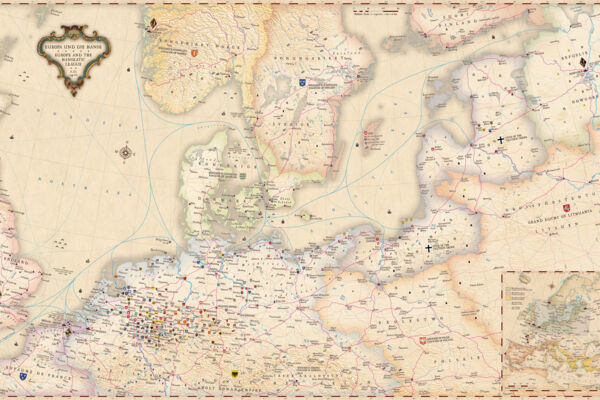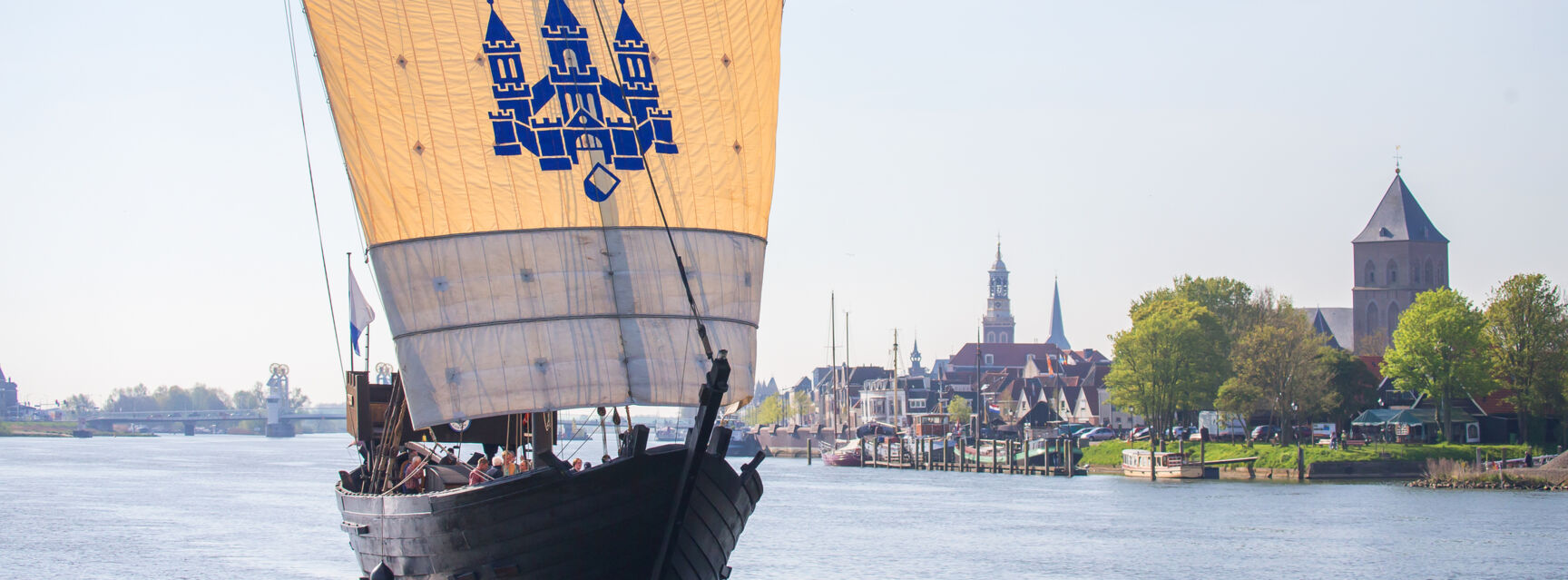
The term Hansa is derived from the Old High German word for crowd and has been used for communities of travelling merchants since the 12th century. The long-distance merchants joined forces to better protect themselves against pirates and to jointly pursue their economic interests - the foundation stone for the Hanseatic League was laid.
Trade across borders
In the heyday of the network, more than 200 towns were part of the Hanseatic League, mainly around the Baltic Sea and inland up to the line Cologne - Erfurt - Krakow. However, the influence of the Hanseatic League extended far beyond this area: with trading posts from Portugal to Russia and from Finland to the Mediterranean. In Novgorod, Bruges, London and Bergen, the long-distance traders founded four large kontors; smaller branches were established in many other trading centres. For more than 400 years, the Hanseatic League shaped the economy, trade and politics in northern Europe before losing its importance in the middle of the 17th century.
THE HANSA today
Today, THE HANSA now has almost 200 members in 16 countries, making it one of the largest voluntary associations of towns in the world. It is no longer about asserting economic interests, but rather about exchange and cross-border cooperation. The Union of Cities aims to promote the cultural heritage and Hanseatic identity in the member cities and to work together for a united and peaceful Europe.
With the "International Hanseatic Day of Modern Times", THE HANSA picks up the tradition of the medieval Hanseatic Days. Every year, a different Hanseatic city hosts the event to celebrate the common past and international understanding.

